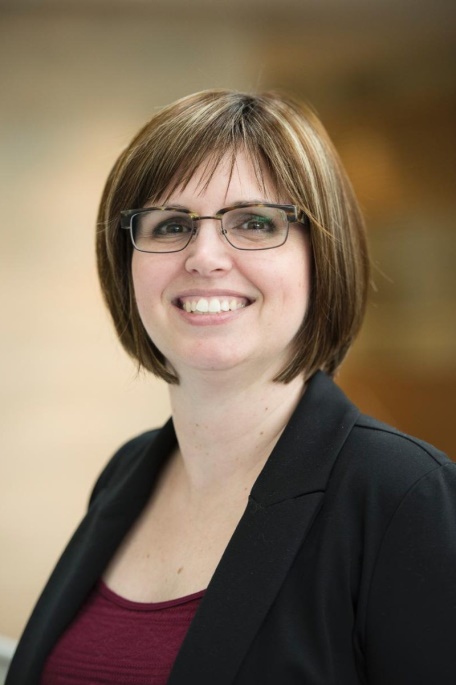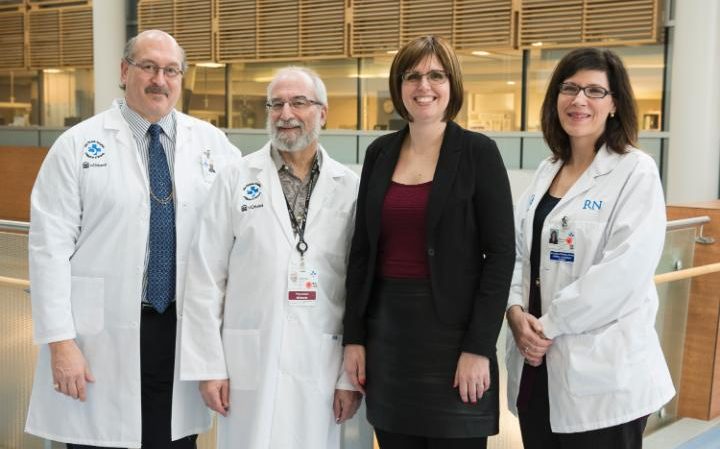HOPE FOR MULTIPLE SCLEROSIS CURE AS A GROUP OF SERIOUSLY ILL PATIENTS RECOVER AFTER 'BREAKTHROUGH' STEM CELL TREATMENT.

Jennifer Molson skis after recovering from Multiple Sclerosis CREDIT: THE OTTAWA HOSPITAL
Multiple sclerosis patients who were severely disabled are walking, working and even downhill skiing again following a breakthrough therapy which completely destroys, then rebuilds, the immune system.
The trial, which is the first in the world to show complete long-term remission from the debilitating disease has been hailed by experts as ‘exciting’ ‘unprecedented,’ and ‘close to curative.’
Although it is unclear what causes MS it is thought that the immune system attacks the protective coating which surrounds nerve cells in the brain and spinal cord leading to inflammation, pain, disability and in severe cases, early death.
The new technique, which is a treatment usually used to fight leukaemia, involves using chemotherapy to entirely eradicate the damaged immune system, before rebooting it with a transfusion of bone marrow cells.
Out of the 24 patients who were given the treatment at least seven years ago, the majority have seen significant improvements . 70 per cent of patients saw a complete stop to the progression of the disease, while 40 per cent saw a reversal in symptoms such as vision loss, muscle weakness and balance loss.
Jennifer, she freaked me out one day when she came to the clinic wearing high heels. This was a girl who could barely walk.Dr Mark Freedman.
Some participants were able to return to work, school, regain the ability to drive, get married and have children.
Trial participant Jennifer Molson, who was diagnosed with MS in 1996, and received her stem cell transplant in 2002 said: “Before my transplant I was unable to walk or work and was living in assisted care.
“Now I am able to walk independently, live in my own home and work full time. I was also able to get married, walk down the aisle with my Dad and dance with my husband.
“I’ve even gone downhill skiing. Thanks to this research I have been given a second chance at life.”

Jennifer Molson CREDIT: TREVOR LUSH
Dr Mark Freedman, of the University of Ottawa and Ottawa Hospital, where the trials were carried out, said: “Jennifer, she freaked me out one day when she came to the clinic wearing high heels. This was a girl who could barely walk.”
MS affects around 100,000 people in Britain. Similar trials have been taking place across the UK and the US but none has shown such long term remission.
The trial included 24 participants with aggressive, relapsing MS who were followed for up to 13 years after treatment.
The procedure involves giving a person medication to coax their stem cells to migrate from their bone marrow into their blood.
These stem cells are then collected from the blood, purified and frozen.
Then, high doses of chemotherapy drugs are used to eliminate the person’s diseased immune system.
The frozen stem cells are then frozen and transplanted back into the same person, so that they can give rise to a new immune system that has no memory of the previous pattern of attacking the central nervous system.

Dr Mark Freedman, Dr Harold Atkins, Jennifer Molson and trial coordinator Marjorie Bowman CREDIT: THE OTTAWA HOSPITAL
“Our trial is the first to show the complete, long-term suppression of all inflammatory activity in people with MS,” said Dr Harold Atkins, a stem cell transplant physician and scientist at The Ottawa Hospital, and associate professor at the University of Ottawa.
“A variation of this procedure has been used to treat leukaemia for decades, but its use for auto-immune diseases is relatively new.
“This is very exciting. However, it is important to note that this therapy can have serious side effects and risks, and would only be appropriate for a small proportion of people with very active MS.”
During the trial one participant died of liver failure due to the treatment and another required intensive care for liver complications.
Dr Emma Gray, Head of Clinical Trials at the MS Society, said: “This type of stem cell transplantation is a rapidly evolving area of MS research that holds a lot of promise for people with certain types of MS.
“This treatment does offer hope, but it’s also an aggressive procedure that comes with substantial risks and requires specialist aftercare. If anyone is considering HSCT we’d recommend they speak to their neurologist.”

Jennifer Molson kayaking CREDIT: THE OTTAWA HOSPITAL
But experts said the results constituted a breakthrough in the treatment of MS.
Prof Siddharthan Chandran, MacDonald Professor of Neurology, MRC Centre for Regenerative Medicine, University of Edinburgh, said: “This is an important and carefully conducted proof of concept study that demonstrates that powerful chemotherapy based treatment for a selected subset of MS patients with very aggressive disease is effective in preventing further disabling relapses and, in a proportion, appears to render them effectively disease free.”
Dr Stephen Minger, stem cell biologist and independent consultant, of SLM Blue Skies innovations Ltd said: “The clinical results are truly impressive, in some cases close to being curative.
“For a life-long progressive disease like MS with few treatment options this is really exciting data. I would consider it a breakthrough therapy.”
The research was published in The Lancet.
Follow us on Twitter - @akatechsolution
Leave a Comment
Let Millions of People know about your Product(s) / Service(s)
Target a Specific Audience on different News Categories
Our Partners
"Making the simple complicated is commonplace; making the complicated simple, awesomely simple, that's creativity"
- Charles Mingus

























































